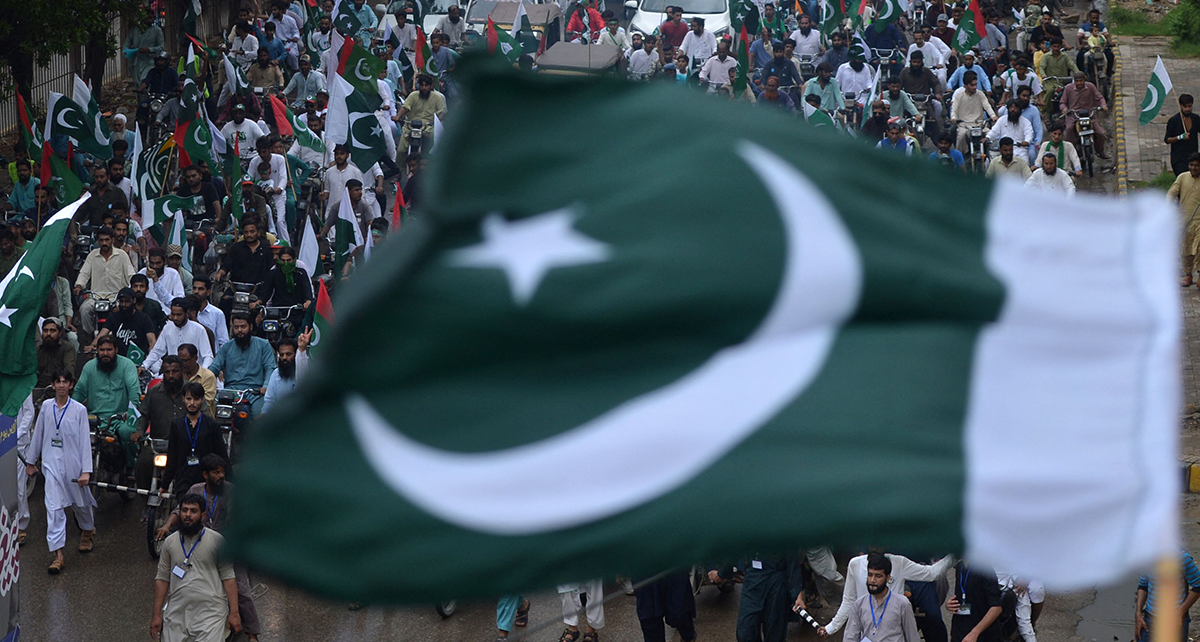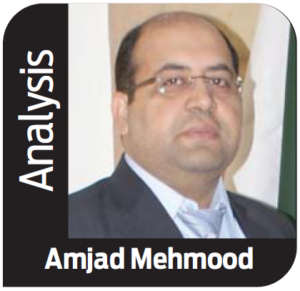

—Pakistan, a nation born out of hope and resilience in 1947, stands today at a crossroads of uncertainty. The country’s political history, marred by repeated failures and power struggles, has led to economic instability and social disorder. As we reflect on our 77-year-long journey, it becomes increasingly clear that the foundations of democracy in Pakistan are under threat. The crisis lies in a complex interplay between hybrid democracy, political leaders, parties, and the military establishment. This delicate balance has consistently tilted towards favoring those in power rather than serving the public interest. The consequences are stark: a nation once full of promise now teeters on the edge of collapse, leaving its citizens searching for hope in a sea of despair.
To understand the depth of the dilemma, let’s examine the historical context and the current situation that has brought Pakistan to this critical juncture.
Pakistan’s political history is replete with instances where democratic principles were compromised for personal gain or power consolidation. From the early days of martial law to the present, each era has contributed to the erosion of trust in democratic institutions. One of the earliest and most significant blows to Pakistani democracy came in 1958 when General Ayub Khan seized power, marking the beginning of military rule in the country. This set a precedent that would be repeated throughout Pakistan’s history, with subsequent coups in 1977 and 1999 from military dictators General Zia-ul-Haq and General Pervez Musharraf respectively. These interruptions in democratic governance not only halted the country’s progress but also created a culture of dependency on non-civilian rule. Political parties, instead of strengthening their grassroots support, often sought alliances with powerful military figures to secure positions of power.
In recent years, Pakistan has witnessed what many term “hybrid democracy.” This system combines elements of both democratic and authoritarian governance, leading to a unique form of political rule that undermines the core principles of democracy. Under this system, elected governments operate within constraints set by unelected forces, particularly the military establishment. The concept of a hybrid regime publically surfaced during PTI-led government formed in the year 2018. This arrangement allows for a semblance of democratic processes while maintaining control over crucial policy decisions. The result is a political landscape where elected officials struggle to assert their authority, leading to ineffective governance and further eroding public trust in democratic institutions. Former prime ministers including Mian Muhammad Nawaz Sharif and Imran Khan publicly expressed their inability to fully exercise their powers as head of state; however, both political leaders failed to resist interruption in their authority from non-elected forces while enjoying the perks of ruling in Pakistan.
The current coalition government in Pakistan led by Prime Minister Mian Muhammad Shahbaz Sharif faces unprecedented economic and social challenges. Formed after the ouster of Imran Khan’s PTI-led administration, this government lacks strong public support despite unconditional backing from the military establishment. The relationships between the ruling coalition and the military establishment are ideal due to ongoing tensions with the PTI leadership. This conflict has added fuel to an already volatile political environment, exacerbating the sense of uncertainty among citizens.
Pakistan’s economic woes are deeply intertwined with its political instability. The constant changes in government policies and priorities have made long-term planning nearly impossible, deterring foreign investment and hindering sustainable growth. The country’s reliance on IMF bailouts and its struggle to manage debt speak volumes about the failure of successive governments to implement effective economic strategies. This instability has led to rising inflation, unemployment, and a general decline in living standards for the majority of Pakistanis.
The impact of political failures extends far beyond economic indicators. It has contributed significantly to social disorder and unrest across the country. Rising poverty levels have led to increased crime rates and social tensions. The lack of trust in institutions has resulted in a breakdown of social cohesion, with communities becoming increasingly polarized along political and religious lines. Moreover, the constant power struggles at the top have overshadowed pressing issues such as education reform, healthcare improvement, and environmental protection. These oversights have left future generations facing significant challenges in critical areas of development.
Pakistan’s military establishment plays a complex role in the country’s political landscape. While it has often stepped in during times of crisis, its interventions have also contributed to the weakening of civilian institutions. The ongoing conflict between the military leadership and PTI Chairman Imran Khan has further complicated matters. This head-on confrontation threatens to destabilize an already fragile political environment, leaving many wondering about the future of democratic governance in Pakistan. Both the military and Mr. Khan need to review their standpoints considering the miseries of the Pakistani nation.
Perhaps the most alarming consequence of these political failures is the growing disillusionment among Pakistani citizens. As people lose faith in democratic processes and institutions, they begin to seek alternatives – often turning to non-democratic forces for solutions. This trend poses a significant threat to the foundations of democracy in Pakistan. If citizens no longer believe in the power of their vote or the ability of elected officials to represent their interests, the legitimacy of democratic governance is severely undermined.
As Pakistan stands at this critical juncture, it faces both immense challenges and potential opportunities for reform. The path forward will require courage, vision, and a commitment to genuine democratic principles. Political parties must focus on strengthening their grassroots support and developing clear policy agendas that address the pressing issues facing by the Pakistanis. They must also work towards reducing their dependency on military backing and instead build alliances based on shared political visions. The military establishment, too, has a crucial and significant role to play. By maintaining its constitutional role and supporting civilian institutions rather than undermining them, it can contribute significantly to stabilizing Pakistan’s democratic system.
Finally, Pakistani citizens must remain vigilant and engaged in the democratic process. Their participation in elections, peaceful protests, and public discourse is essential for holding elected officials accountable and pushing for meaningful legislation, reforms, and development. As we reflect on Pakistan’s journey since 1947, it becomes clear that our greatest challenge lies not in external threats, but in our internal struggle to establish a truly representative democracy. The road ahead will be difficult, filled with obstacles and uncertainties. However, it also presents us with an opportunity to redefine what democracy means in the Pakistani context – a system that truly serves the people, protects their rights and provides them with hope for a better future.
In this moment of crisis, we must remember that democracy is not merely a form of government, but a way of life. It requires patience, resilience, and a commitment to principles over personalities. As we navigate these turbulent waters, let us hold fast to the vision of the great Quaid, Muhammad Ali Jinnah, who dreamed of a nation where every citizen could live freely and prosperously under the rule of law. The nation needs to work together to reclaim our democracy, strengthen our institutions, and build a Pakistan that truly belongs to its people.
We will not be able to escape the cycle of failure and create a better future for younger generations unless we work together and recommit to democratic values. It’s time to make a paradigm shift. Will we grasp the opportunity before us, or will we keep moving in the direction of chaos and instability?






